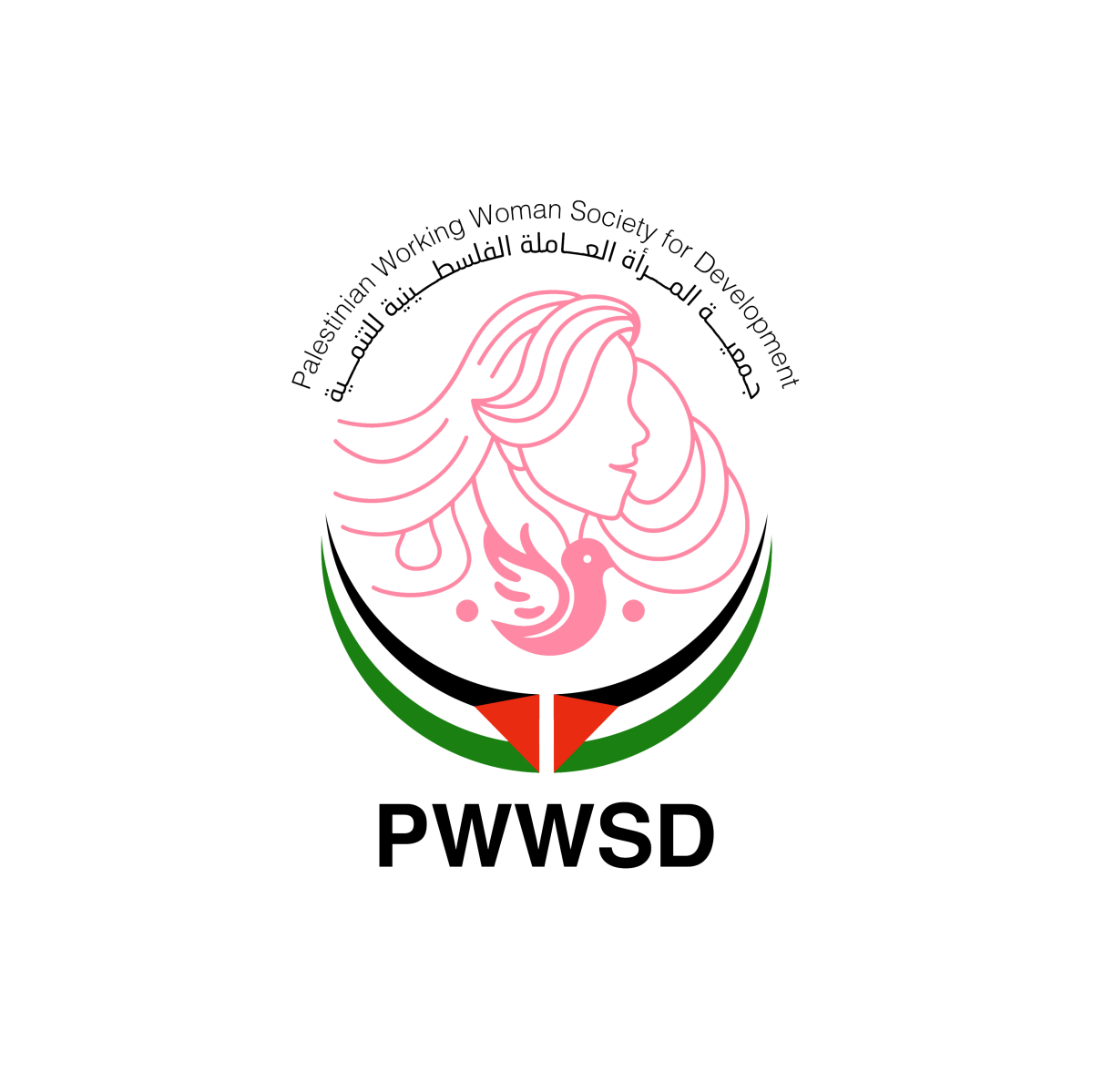Women workers call for minimum wage and labor law enforcement, and addressing GBV, during a series of awareness sessions in the Gaza Strip and Hebron conducted by PWWSD through the “Gender Equality in the Economic Sphere: Our Right, Our Priority”
Ramallah- 20/6/2022: Within the project “Gender Equality in the Economic Sphere: Our Right, Our priority”, funded by the European Union and implemented jointly by DWRC, PWWSD, EducAid, and COSPE, the Palestinian Working Woman Society for Development (PWWSD) conducted a series of awareness raising sessions in the Gaza Strip and Hebron governorate in May 2022 about decent work and gender equality, working women’s rights according to domestic law and international standards, women’s status and gender-based violence (GBV) in the labor market. The sessions were attended by 68 women working for Zeina Cooperative at Um Al-Nasser Village, the Rural Women Development Society- Wadi Salqa, and at the kindergartens of Ahali Al-Mawassi Association in the southern Gaza Strip, as well as 40 women activists from Beit Awwa Rural Women Development Association and Nahdet Bint Al-Reef Women Association in Dora (South Hebron).
PWWSD’s community mobilizer, Yaseen Abu Ouda, opened the Gaza sessions by emphasizing the importance of raising women’s awareness of their economic rights and improving the work conditions of working women in the Gaza Strip. He stressed that PWWSD seeks to increase working women’s knowledge of their rights and duties, and of the Palestinian labour law, in light of the exploitation and violations of their rights they face in the labour market.
Lawyer Ahmad Mazen Al-Banna, one of the sessions’ lecturers, introduced participants to the concepts of decent work and gender equality. He discussed violations of rights that working women face, labour conventions that ban discrimination, harassment against working women, and the minimum wage and its connection with achieving social justice. Moreover, he introduced participants to the nature of GBV within the labour market and mechanisms for facing such practices, alongside with explaining the international standards related to the minimum wage.
On a related level, lawyer Alaa Tafish presented international standards related to women's work and their relationship with national laws and international conventions related to women’s work and prohibiting discrimination. She also introduced participants to dispositions of the Palestinian labour law, linking them to the international standards related to the right to work, with particular emphasis on women's work and special rights of working women, such as maternity leave. She addressed the minimum wage in connection with women's work and wage equality, and the necessity to enhance trade unions’ role in protecting working women's rights, and localizing international conventions and treaties related to working women's rights.
The two sessions held in Hebron were facilitated by lawyer Razan Al- Jaabari and were designed to introduce women to the general concepts of their rights within local and international laws, as well as acquaint them with the various forms of GBV in workplaces, mechanisms to eliminate GBV and report violence and harassment in workplaces, including sexual harassment. The sessions relied on a participatory learning approach through group work and interactive activities, as well as providing legal counselling.
Iman Calli, a participant from the Rural Women Development Association- Wadi Salqa, mentioned the necessity to raise working women's awareness of their right to the minimum wage, especially among those paid less than the minimum wage level. Calli called for putting pressure on competent ministries to enforce the minimum wage and follow-up on violations of women’s rights in this regard.
Participant Rasha Al-Sha’er, from Ahali Al-Mawassi Association in Khan-Younis, said that “the Mawassi area is among the most marginalized areas, and women face GBV noticeably”. She emphasized the necessity to enforce the Palestinian labour law and end violations of rights, and raise the community and women's awareness of working women's rights. Al-Shaer stressed that community awareness sessions contribute in developing women's capacity to demand and advocate for equal rights, and enforcement of the Palestinian Labour Law in marginalized areas.
Participants in the Hebron sessions said that it was important for them to participate in these sessions, which strengthened their understanding of forms of violence women are exposed to in the work environment. One of them indicated that “many of us are exposed to sexual harassment, but we used to consider this as an "ordinary" thing”. Another participant added “I didn’t know that daily working hours should be between 7- 8 hours; I used to work 12 hours daily, thinking this was normal”.
The participants requested the support of CSOs active in Gaza Strip to strengthen the concepts of decent work among women and monitor GBV in Gaza, which is increasing. They stressed the necessity of enforcing the minimum wage in the various employment sectors, and abiding with international conventions and standards related to women’s rights. Additionally, they focused on the necessity to continue raising working women’s awareness of their rights and protecting them from endemic violations in workplaces. They also highlighted the necessity to hold accountability sessions with employers and compel them to respect international conventions to which the State of Palestine acceded. Participants in the Hebron sessions recommended arranging educational sessions for women home workers and involving them in trainings. Additionally, they demanded holding educational activities for girls above 18 years old about violence and sexual harassment in workplaces, especially in vocational training centres.
For further information, please contact:
Carine Metz Abu Hmeid
Democracy and Workers’ Rights Center in Palestine
Cell Phone: 0599871047






